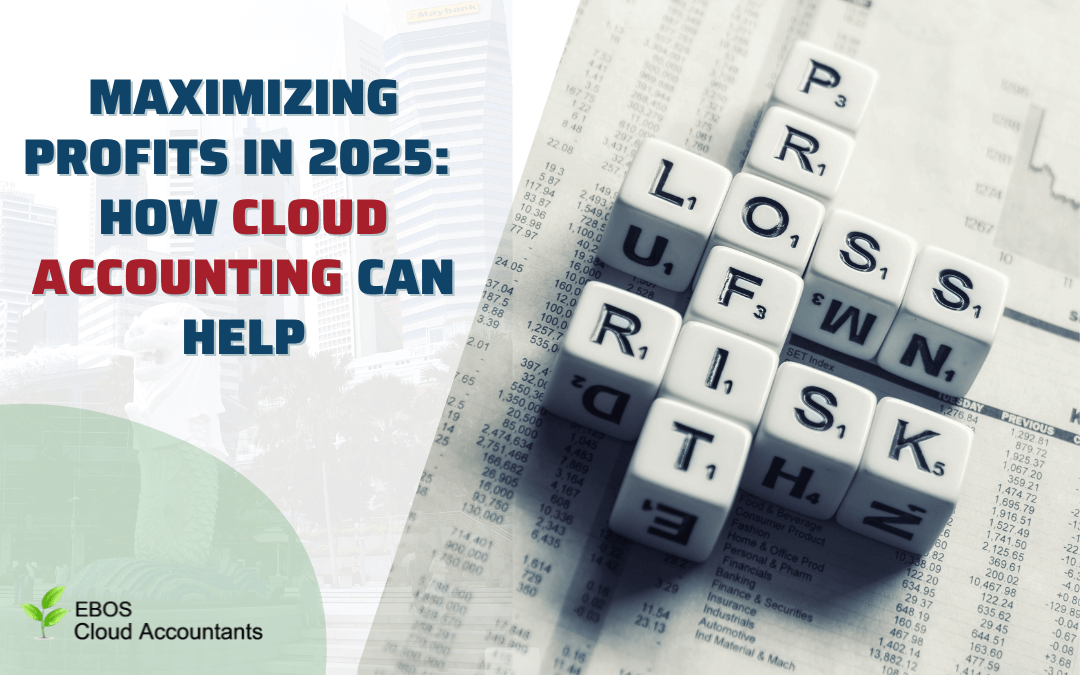In today’s fast-paced business world, maximizing profits is a top priority for companies of all sizes. As we move into 2025, technology continues to shape financial strategies, and cloud accounting has emerged as a game-changer. By leveraging cloud-based financial tools, businesses can streamline operations, enhance accuracy, and make data-driven decisions that boost profitability.
The Advantages of Cloud Accounting
1. Real-Time Financial Insights
One of the biggest advantages of cloud accounting is real-time access to financial data. Unlike traditional accounting systems that rely on periodic updates, cloud-based solutions provide instant access to financial reports, helping businesses track cash flow, monitor expenses, and identify profit opportunities more efficiently.
2. Cost Savings and Scalability
Cloud accounting eliminates the need for expensive software, hardware, and IT maintenance. With a subscription-based model, businesses only pay for what they use, making it a cost-effective solution. Additionally, cloud platforms can scale as businesses grow, ensuring that financial management systems adapt to changing needs without incurring significant costs.
3. Automation and Efficiency
Manual bookkeeping and data entry are time-consuming and prone to errors. Cloud accounting automates many accounting processes, such as invoicing, payroll, and bank reconciliations. Automation reduces human errors, saves time, and ensures that financial records remain accurate and up to date.
4. Enhanced Security and Compliance
Security is a major concern for businesses handling sensitive financial data. Cloud accounting providers invest heavily in cybersecurity measures such as encryption, multi-factor authentication, and automatic backups. Additionally, cloud solutions help businesses stay compliant with tax regulations and financial reporting standards by keeping records organized and audit-ready.
5. Improved Collaboration
Cloud accounting allows multiple users, including accountants, financial advisors, and business owners, to access financial data from anywhere. This fosters collaboration and ensures that financial decisions are based on up-to-date information, leading to better strategic planning and profit maximization.
Implementing Cloud Accounting for Profit Growth
To fully benefit from cloud accounting, businesses should:
- Choose the Right Platform: Opt for reputable cloud accounting software such as QuickBooks Online, Xero, or FreshBooks, based on business needs.
- Integrate with Other Tools: Connect cloud accounting with CRM, payroll, and inventory management systems to create a seamless financial ecosystem.
- Leverage Analytics: Use built-in analytics and reporting features to identify trends, forecast cash flow, and optimize budgeting.
- Train Staff: Ensure employees understand how to use cloud accounting tools effectively to maximize efficiency and accuracy.
Conclusion
As we enter 2025, businesses must embrace digital solutions to stay competitive and profitable. Cloud accounting offers unparalleled advantages, from cost savings and automation to real-time financial insights and enhanced security. By adopting cloud-based financial management, businesses can streamline operations, make informed decisions, and ultimately maximize their profits in the evolving economic landscape.
Check out our website at https://ebos-sg.com/ to explore more articles and discover how our Cloud Accountant Services can support you on your business.







